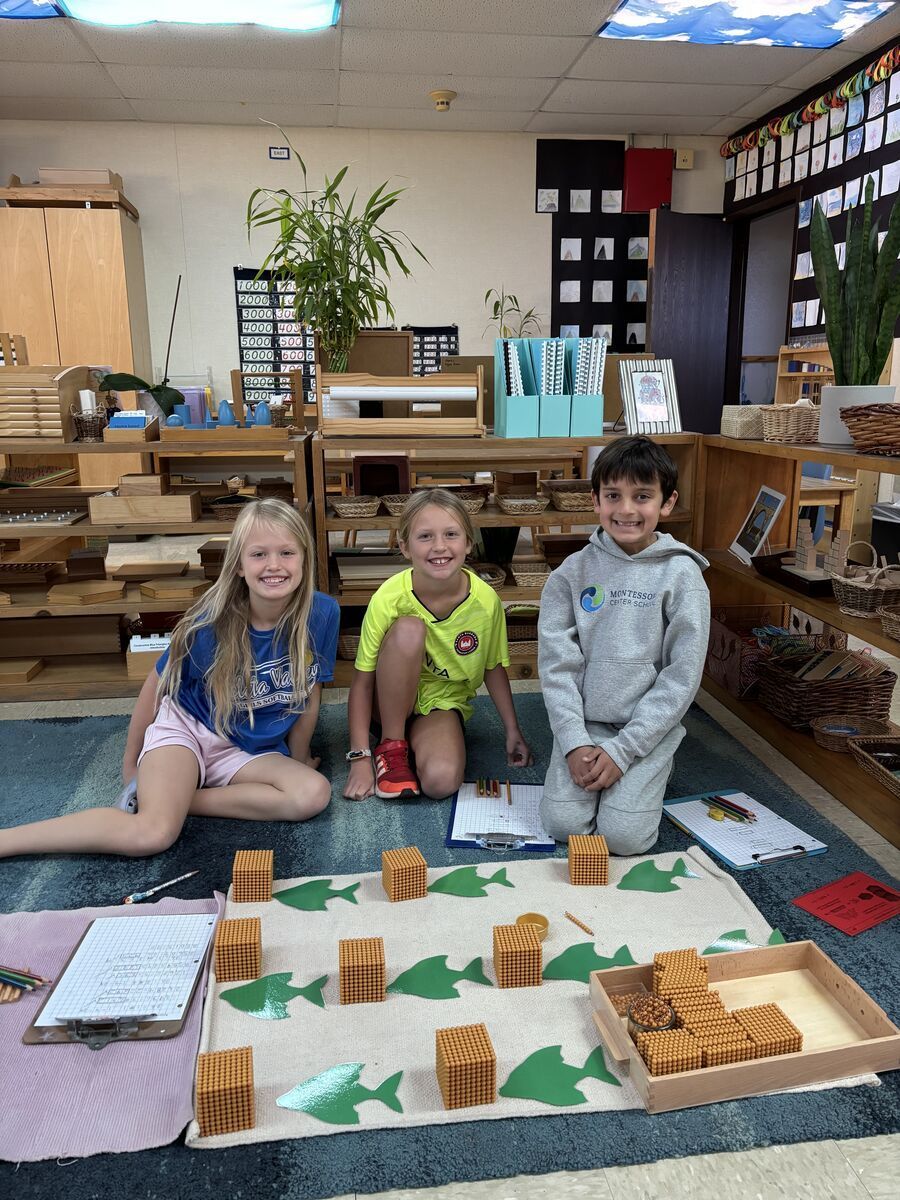Grace & Courtesy in the Montessori Classroom

In Montessori, we nurture grace and courtesy in the classroom. But what does grace and courtesy really mean? And what role do they play in supporting the development of social relationships?
What is Grace? What is Courtesy?
Let’s first isolate each word. Grace can be defined in two parts: 1. simple elegance or refinement of movement, and 2. courteous goodwill. Courtesy is defined simply as: the showing of politeness in one’s attitude and behavior toward others. Stated another way, grace and courtesy comprise how we move through the space around us showing respect for ourselves and others.
Grace & Courtesy Lessons
In our toddler and primary classrooms, grace and courtesy are considered to be part of practical life learning and we devote time to grace and courtesy lessons. For example, teachers give instruction on how to walk around someone’s work on the rug, how to wait your turn, how to offer help, how to tuck a chair under the table, or how to introduce oneself. These lessons are offered one-on-one or in small groups and we often use role playing as a technique for exploring the skills.
In the Older Years
As children enter their elementary years, our approach shifts slightly. Elementary-age children are more focused on their social interactions and are learning how to navigate the ups and downs of friendships. As such, much of the grace and courtesy work at this level provides children with tools for communicating directly and respectfully, sharing perspectives thoughtfully. In addition, they are learning how to interact with the broader community as they arrange visits or interviews, conduct themselves according to the norms of different communities, and explore how to be a host or be a guest.
The Goal
The goal in Montessori education is that these acts of grace and courtesy aren’t rigid expectations, like insisting that children say please and thank you. Rather, they become part of how children want to be and interact. Dr. Montessori is quoted as saying: “…the essential thing is that [the child] should know how to perform these actions of courtesy when his little heart prompts him to do so, as part of a social life which develops naturally from moment to moment.”
Like all other exercises in Montessori prepared environments, we offer opportunities to regularly practice and repeat grace and courtesy skills. Because these experiences are part of the normal functioning of the day, they provide a respectful way for young people to learn expectations and for adults to provide scaffolding and assistance for social skills.
The Results
In time, as we offer these grace and courtesy opportunities and give children a safe place to practice, our young people eventually perform these skills independently.
Curious to learn more about the Montessori approach? Contact us today to schedule a tour.
Programs
Montessori Center School admits students of any race, color, religion, national and ethnic origin, gender identity, and sexual orientation to all rights, privileges, programs and activities general recorded or made available to students at the School. It does not discriminate on the basis of race, color, religion, national and ethnic origin, gender identity or sexual orientation in the administration of its educational programs, admission and tuition assistance policies, and athletic or other school-administered programs. Non-Profit Education Organization, License No. 426205239


